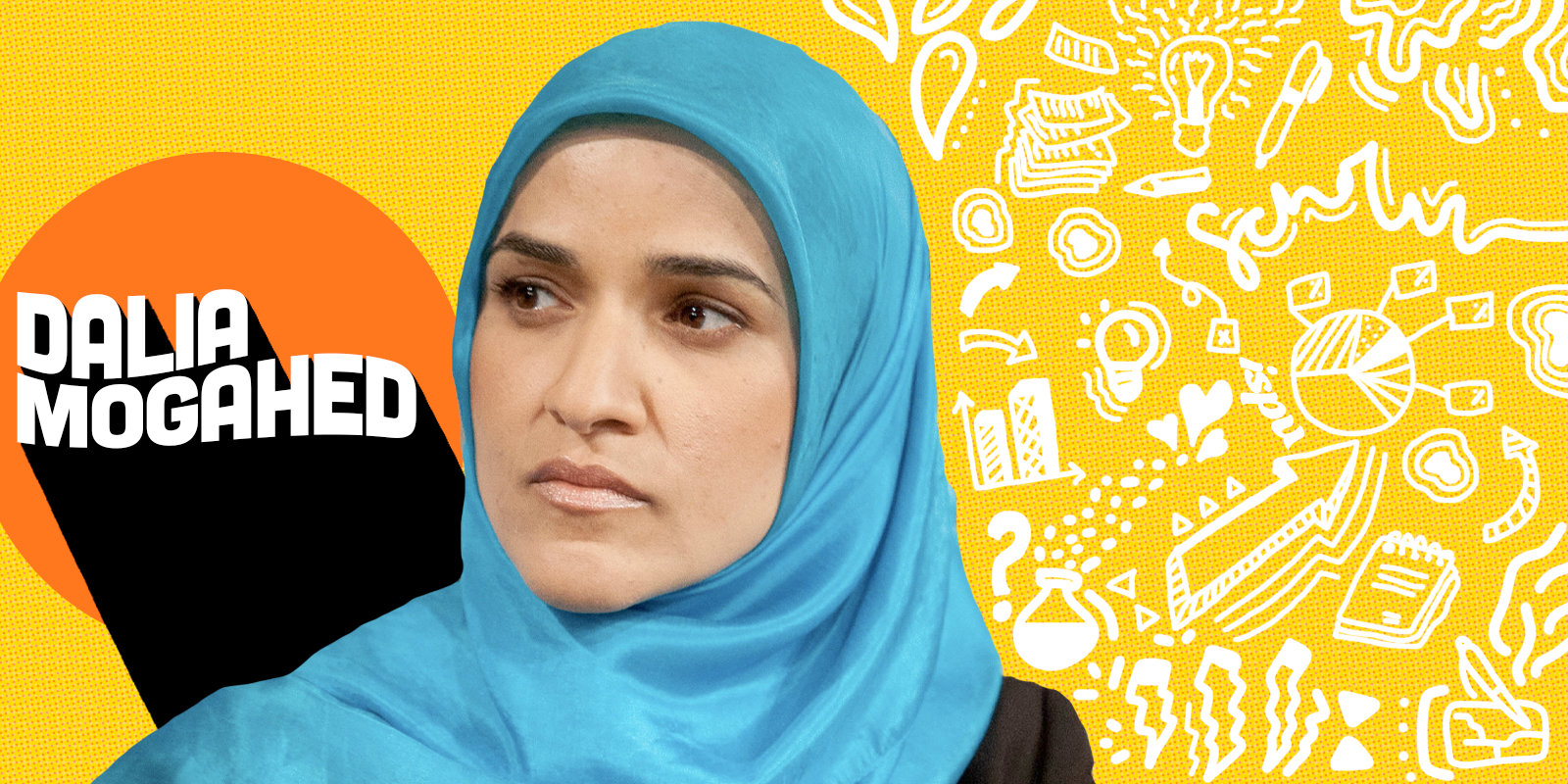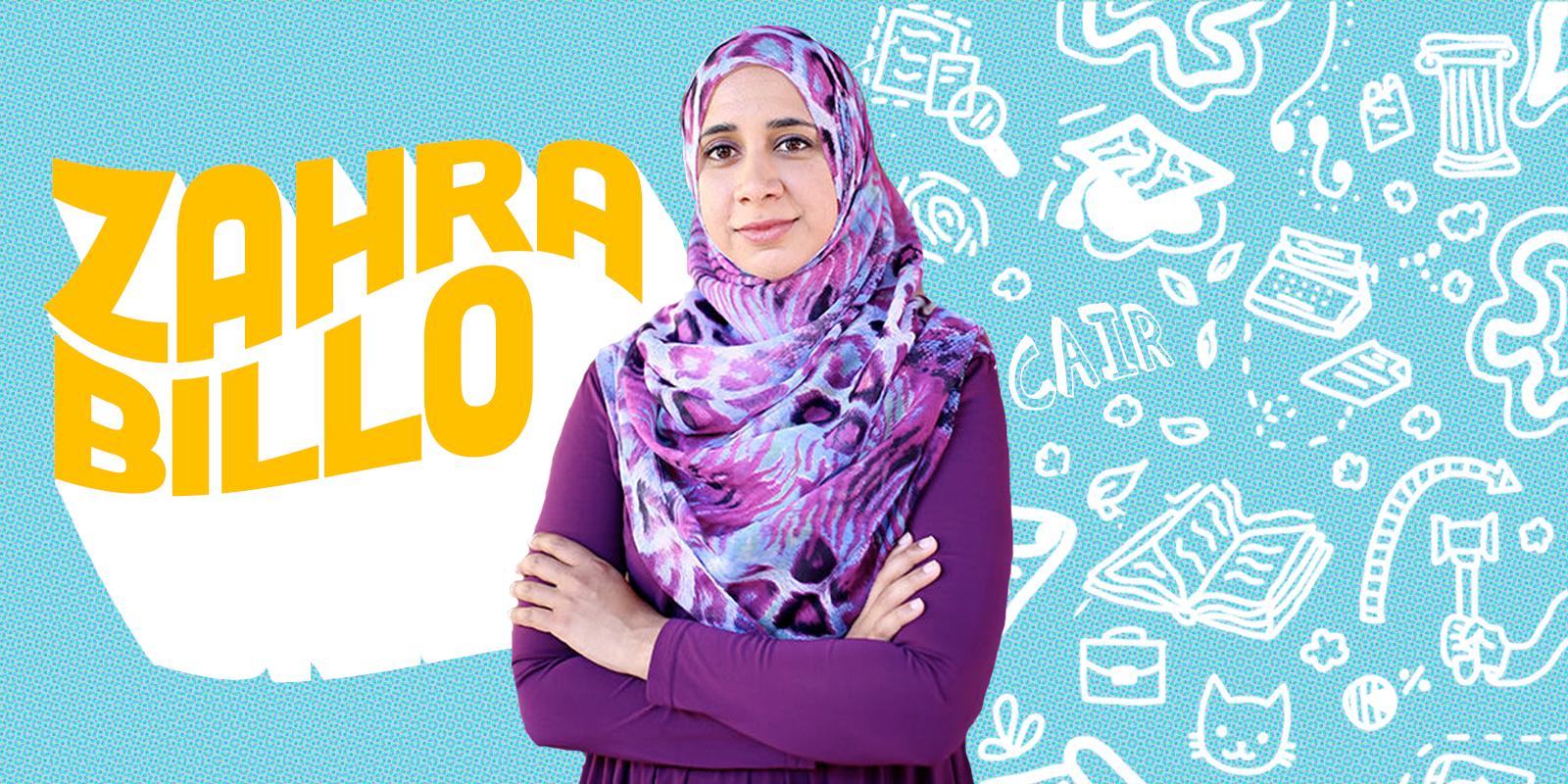
This Muslim.co feature is in partnership with Asian American Journalist Associations’ Muslim American Task Force with the mission to uplift Muslim community members.
Islamic scholar and Muslim media figure Dalia Mogahed got candid with Muslim about identity, her personal battle with being the “perfect” Muslim, and her experience as a minority figurehead in America.
After going viral in 2016 for her raw Ted Talk on “What It’s Like to Be Muslim in America,” Mogahed was named by CNN as one of the“25 Most Influential American Muslims” and has made several apperances on major media outlets, including MSNBC, PBC, and even The Daily Show with Trevor Noah.
But despite the name that she has made for herself as an Islamic figurehead in American media, Mogahed shared how growing up she, too, felt the immense pressure to be a “perfect” Muslim to “counter-stereotype” the villainic, belligerent image of Muslims pervading the media.
“My biggest struggle was both being misunderstood and having to do the emotional labor of being a walking educational webinar… to be the perfect representative of Islam,” said Mogahed. “It is exhausting to be a mascot, a 24-hours-a-day counter-stereotype… What if I don’t give my rightfully obtained parking spot to the white lady who came after me? Will she now hate all Muslims and I’m responsible?”
Though Mogahed is no stranger to the systemic oppression that Muslims must face on a daily basis for simply existing, she offered valuable advice for those who feel that they may be crumbling under this debilitating pressure, insisting that regardless of one’s religiousness and the status quo, all Muslims are allowed their right to being human.
“Be your human self in full, and not a counter-stereotype, which is as dehumanizing as being a stereotype,” stated Mogahed. “We have to demand the right to be fully human, which means Muslims being allowed to be as messed up as anyone else and still treated as equal. We should not have to be perfect as the minimum requirement for inclusion, while the dominant culture displays its deep and pervasive flaws, and still demands full rights.
Outside of the media world, Mogahed is also the director of research for the Islamic research organization,the Institute for Social Policy and Understanding in Washington D.C.
The non-profit is dedicated to providing thousands of schools, workplaces, and media outlets with leading research on issues impacting Muslims in America.
“Our vision [Institute of Social Policy for Understanding] is an America where Muslims are thriving and equal,” said Mogahed. “Our research helps provide the recommendations needed to build more inclusive Muslim spaces,” shared Mogahed.
Mogahed continued on, stating that the organization only aims to continue “to do groundbreaking research on the American Muslim community and the issues that impact the community disproportionately” with the goal of reaching “the hands of changemakers to make a positive impact.”
As for her own future plans, the scholar divulged that she would like to extend into the field of rehabilitation for Muslims.
“’I’m very passionate about building a rehab center to address addiction in the Muslim community that builds on the 12 steps program with additional Islam-based principles and strategies,” shared Mogahed.
When she is not doing ground-breaking work as a researcher or making appearances on the news as a powerful voice for Muslims in the media, Mogahed resides in Washington D.C. with her husband and two kids.
To learn more about Mogahed’s work for the Institute for Social Policy and Understanding, visit https://www.ispu.org/dalia-mogahed/
—
About AAJA’s Muslim American Task Force
The Asian American Journalists Association’s mission is to ensure accurate and fair coverage of AAPI communities and, more broadly, communities of color. More than 60 percent of the world’s Muslim population is in Asia and, as such, AAJA created a task force to develop resources for journalists covering Muslim/Muslim American communities and ongoing changes to U.S. immigration policies. The task force seeks to improve coverage of Muslim American issues and serve as a resource to journalists covering Muslim American communities.Learn more at aaja.org.





Published by